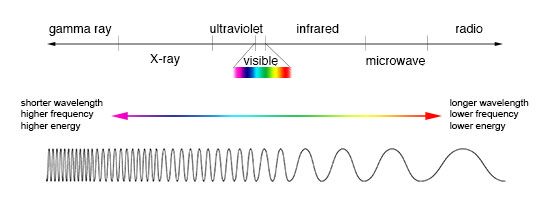Respecting the Work You've Never Done
What seems simple to outsiders is often far more difficult than imagined

We experience the world in a state of asymmetrical information. Neurologically, our brains are constantly synthesizing sensory inputs in ways that can fool us at times. Our eyes have blind spots our brains cover by painting over the holes to fill the gaps. Our ability to see into the electromagnetic spectrum is very limited, with bands of light (x-rays, gamma rays, infrared, and microwaves) invisible to us.

The universe contains all possible information, yet we only see slivers of it, have only the vaguest sense of what’s really going on, barely know what other people are feeling. This is the case even if we expend a lot of effort to learn and discover.
The scope of what we don’t know came to mind recently when I was reading Jason Fried’s excellent book, “It Doesn’t Have to Be Crazy at Work,” in which there’s a chapter entitled, “Low-Hanging Fruit Can Still Be Out of Reach.”
We’ve all been in meetings where someone claims that simply by adding a new business development person or expanding sales into a new territory, the organization will experience rapid positive results because of “low-hanging fruit.” As Fried writes:
The problem, as we’ve learned over time, is that the further away you are from the fruit, the lower it looks. Once you get up close, you see it’s quite a bit higher than you thought. We assume that picking it will be easy only because we’ve never tried to do it before.
Declaring that an unfamiliar task will yield low-hanging fruit is almost always an admission that you have little insight about what you’re setting out to do. And any estimate of how much work it’ll take to do something you’ve never tried before is likely to be off by degrees of magnitude.
Publishers have experienced two decades of people thinking the publishing capability was personal low-hanging fruit — from people saying “publishing is just a button” to people claiming that publishing is something various other entities can easily do.
Such perceptions led me to write a series of lists outlining all the things publishers do, activities many people outside of mainstream publishing didn’t seem to understand or appreciate. The 2018 version saw the list expand to 102 items. Beyond this, there is the overarching issue that usually escapes people because it’s so obvious — one thing publishers (and professionals of all types) do is show up to jobs that can be demanding, tedious, stressful, or exhilarating every day. That’s not to be undervalued for any endeavor.
We’ve all started down some path, assured it would be an easy one to tread. I’m confident everyone here saw something as a youth — a guitar player, a dancer, a race car driver, a football player, a drummer — and thought, “That looks easy and fun.” Almost invariably, the difficulty of doing what we’d seen became immediately apparent — what we saw was just the tip of the iceberg of talent, dedication, commitment, work, practice, repetition, devotion, and tenacity.
As Fried writes:
Respect the work that you’ve never done before. Remind yourself that other people’s jobs aren’t so simple. Results rarely come without effort. If momentum and experience are on your side, what is hard can masquerade as easy, but never forget that not having done something before doesn’t make it easy. It usually makes it hard.
This seems a good way to de-escalate tensions around whether what others do is valuable. It’s an exercise of mutual respect. The people who you think have it easy probably don’t. Low-hanging fruit is almost always an illusion. Making it look easy is the result of a lot of hard work, training, and dedication. Nothing is as easy as it looks. From publishing research to managing information sources to eating a salad in public, it’s always harder than it first appears.
Have a nice weekend! Go see someone do something difficult who makes it look easy.